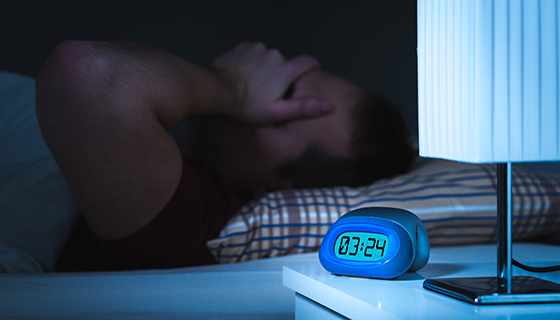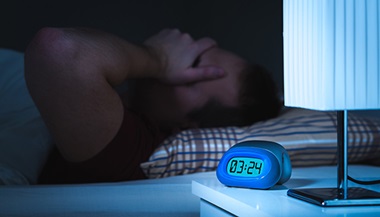Why Do People Snore? Answers for Better Health
From gentle snuffles to loud rasps and snorts, snoring is common. An estimated 45 percent of adults snore occasionally, while 25 percent snore regularly—often disturbing their bed partner’s slumber and possibly their own, too.

You’re more likely to snore if you’re overweight, are a middle-aged or older man, or are a postmenopausal woman. These night noises seem to worsen with age.
Why do people snore? Snoring is the sound of obstructed breathing, which can be caused by some basic factors, such as poor muscle tone, bulky throat tissue, or a long soft palate or uvula. It may also be a red flag that you have a treatable health condition that is interfering with breathing while you sleep—such as nasal congestion caused by a sinus infection or allergy, nasal polyps (noncancerous growths in the nose) or a deviated septum.
But in some cases, snoring may be connected to more serious, even life-threatening, health concerns.
Sleep Apnea
“Snoring—especially loud snoring broken up by pauses in breathing and loud snorts or gasps as the sleeper takes a breath again—can be a sign of obstructive sleep apnea,” says Johns Hopkins sleep expert Alan Schwartz, M.D. “Sleep apnea is a serious risk factor for cardiovascular disease. It should be found and treated as early as possible.”
People with sleep apnea have brief interruptions in breathing throughout their sleep. These pauses may happen up to 20 to 30 times every hour. As a result, oxygen levels in the blood fall and the brain jolts you out of deep sleep so that you take a breath. “You get a surge of the stress hormone adrenaline,” Schwartz explains. “It’s as if someone is shaking you awake every few minutes throughout your sleep. Your heart and cardiovascular system have to work harder. And you miss out on deep, restful sleep.”
As a result, people with sleep apnea face serious health consequences that include:
- An irregular heartbeat
- High blood pressure
- Higher risk for heart attack and stroke
- Higher risk for diabetes
- Increased risk of motor vehicle accidents due to daytime sleepiness
Johns Hopkins research has shown that severe sleep apnea in middle or old age can up your risk of dying prematurely by up to 46 percent. The good news: Treatment with a continuous positive air pressure (CPAP) device that gently blows air into your throat to keep airways open can help reverse the health risks.
Sleep Deprivation
Snoring may interfere with the quantity and quality of your sleep. That’s significant beyond just feeling fatigued the next day. Sleep is a key part of good health. Getting enough sleep may help the body recover from illness and injury. Not getting enough sleep over a period of time is linked to health problems, including obesity, diabetes and heart disease.
The mental benefits of sleep are also important. Sleep problems can make daily life feel more stressful and less productive. Some people with chronic trouble sleeping (insomnia) are more likely to have mental health problems. Sleep problems are also tied to depression. In a research survey, people who had trouble getting enough sleep had trouble doing tasks involving memory and learning.
Sleep needs vary from person to person, but most healthy adults should get about 7 to 9 hours of sleep a night.
Steps Toward Better Sleep and Health
If snoring is a problem for you or a loved one, don’t hesitate to bring it up with a health care professional who can develop an individualized treatment plan.
Research Shows Treating Sleep Apnea Reduces Blood Pressure
People with severe obstructive sleep apnea who used a CPAP device every night saw a reduction in their blood pressure levels in a 2014 study conducted by researchers from Johns Hopkins and other institutions. Eighty-eight percent of the study volunteers had high blood pressure and most were taking medications for it. The study found that those who used a CPAP had healthier blood pressure levels, especially during the night.






